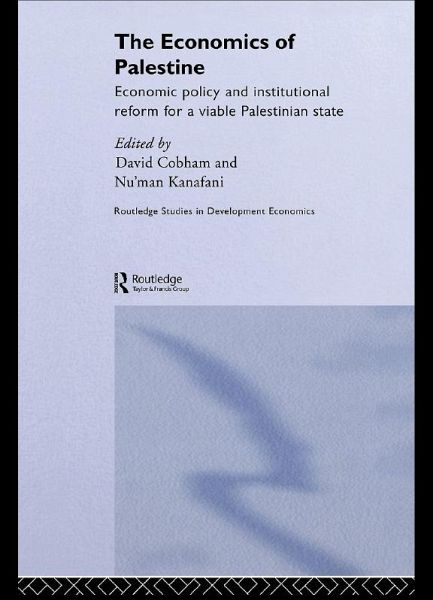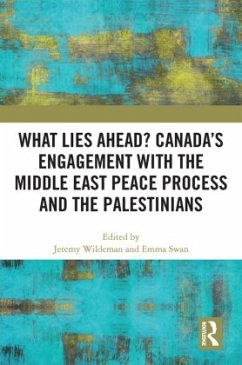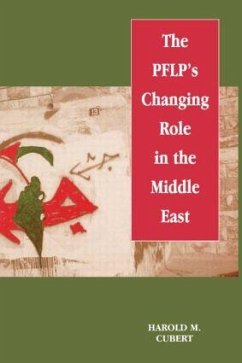
The Economics of Palestine
Economic Policy and Institutional Reform for a Viable Palestine State
Herausgegeben: Cobham, David; Kanafani, Nu'man
Versandkostenfrei!
Versandfertig in 6-10 Tagen
56,99 €
inkl. MwSt.

PAYBACK Punkte
28 °P sammeln!
This book aims to set the intense political debates on one side in order to do some serious economic analysis. It assumes that a sovereign independent Palestinian state comes into existence in the West Bank and Gaza Strip, and proceeds to examine the economic policies and institutional reforms which would be appropriate for it. Key recommendations are that such a state should:_ adopt a non-discriminatory trade regime_ introduce a new currency with a currency board and later a hard peg to the euro_ establish a new type of pension scheme combining universal and work-based elements_ adopt an econ...
This book aims to set the intense political debates on one side in order to do some serious economic analysis. It assumes that a sovereign independent Palestinian state comes into existence in the West Bank and Gaza Strip, and proceeds to examine the economic policies and institutional reforms which would be appropriate for it. Key recommendations are that such a state should:
_ adopt a non-discriminatory trade regime
_ introduce a new currency with a currency board and later a hard peg to the euro
_ establish a new type of pension scheme combining universal and work-based elements
_ adopt an economic strategy geared to the modern knowledge-based global economy and based on the identification of clusters, and
_ take a forward-looking approach to the compensation of refugees which relates compensation to the cost of absorbing returning refugees in a viable and growing economy.
Budgetary policy, corporate governance, financial sector reform and foreign aid strategy are also discussed, and an incomplete contracts model of integration is presented.
The contributors are internationally respected economists from a variety of countries and perspectives. Their analysis should be accessible and relevant to readers of many kinds, from students and academics involved with development economics, politics, and international relations through to policy-makers and those with a general interest in the Middle East.
_ adopt a non-discriminatory trade regime
_ introduce a new currency with a currency board and later a hard peg to the euro
_ establish a new type of pension scheme combining universal and work-based elements
_ adopt an economic strategy geared to the modern knowledge-based global economy and based on the identification of clusters, and
_ take a forward-looking approach to the compensation of refugees which relates compensation to the cost of absorbing returning refugees in a viable and growing economy.
Budgetary policy, corporate governance, financial sector reform and foreign aid strategy are also discussed, and an incomplete contracts model of integration is presented.
The contributors are internationally respected economists from a variety of countries and perspectives. Their analysis should be accessible and relevant to readers of many kinds, from students and academics involved with development economics, politics, and international relations through to policy-makers and those with a general interest in the Middle East.














